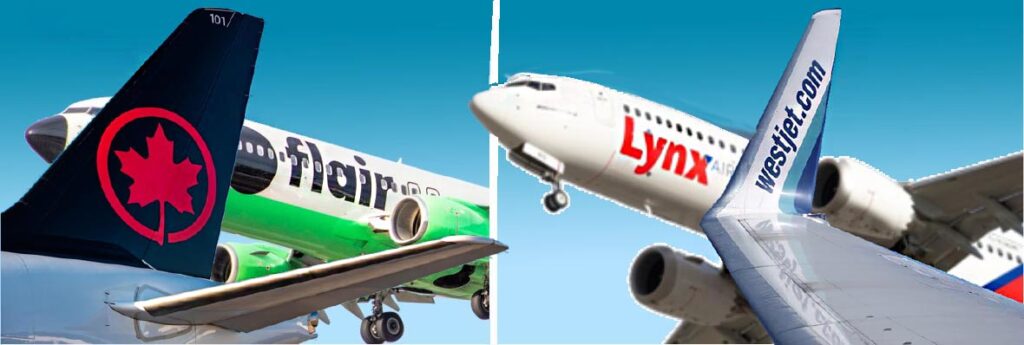Aviation experts say it was just a matter of time before one of Canada’s new low-cost carriers became unable to fly. With recent well documented reports of financial issues at Flair Airlines, it is perhaps more unexpected that Lynx Air was the first to fall in the crowded low-cost marketplace.
(There were also recent rumours of possible merger between Flair and Lynx).
National Bank of Canada analyst Cameron Doerksen says that Lynx’s closure illustrates the challenges of the low-cost carrier model in Canada, given higher airline industry costs than other countries and a limited number of large routes that are already served by other airlines.
Doerksen said one of the financial backers of Lynx was Indigo Partners, a successful private equity investor in numerous low-cost airlines globally.
“The fact that even with the help of an experienced investor, Lynx Air was unable to have success with its ultra-low-cost model strategy and was also unable to source additional capital to sustain its operations speaks to the challenges any startup airline faces in Canada,” he said.
He added Lynx’s exit from the market should have positive implications for the larger carriers in Canada, including Air Canada and Air Transat.
John Gradek, who teaches aviation management at McGill University, said the closure of an ultra-low-cost airline was inevitable. He said the large carriers like Air Canada and WestJet introduced various pricing initiatives last fall to more closely match the lower fares being offered by Lynx and Flair Airlines.
“They basically decided it was time to take on the new guys,” Gradek said.
“That put some downward pressure on prices from both Flair and Lynx in order to maintain a gap and that’s a fast road to bankruptcy, which is what happened.”
But he said Lynx has chosen to pull the plug at a particularly bad time for passengers, with spring break just around the corner.
“Anybody who’s booked … is going to have a hard time finding equivalent space on other carriers because there’s no room left on other carriers to carry Lynx’s passengers,” Gradek said.
“That, to me, is flying in the face of trying to come out of a Canadian marketplace with grace.”

